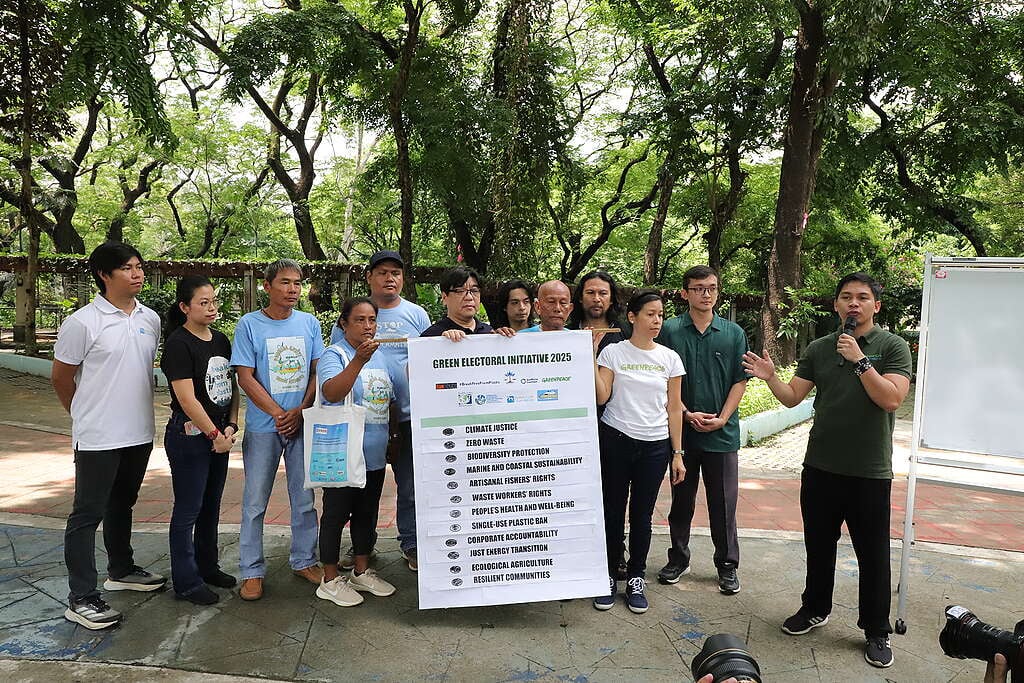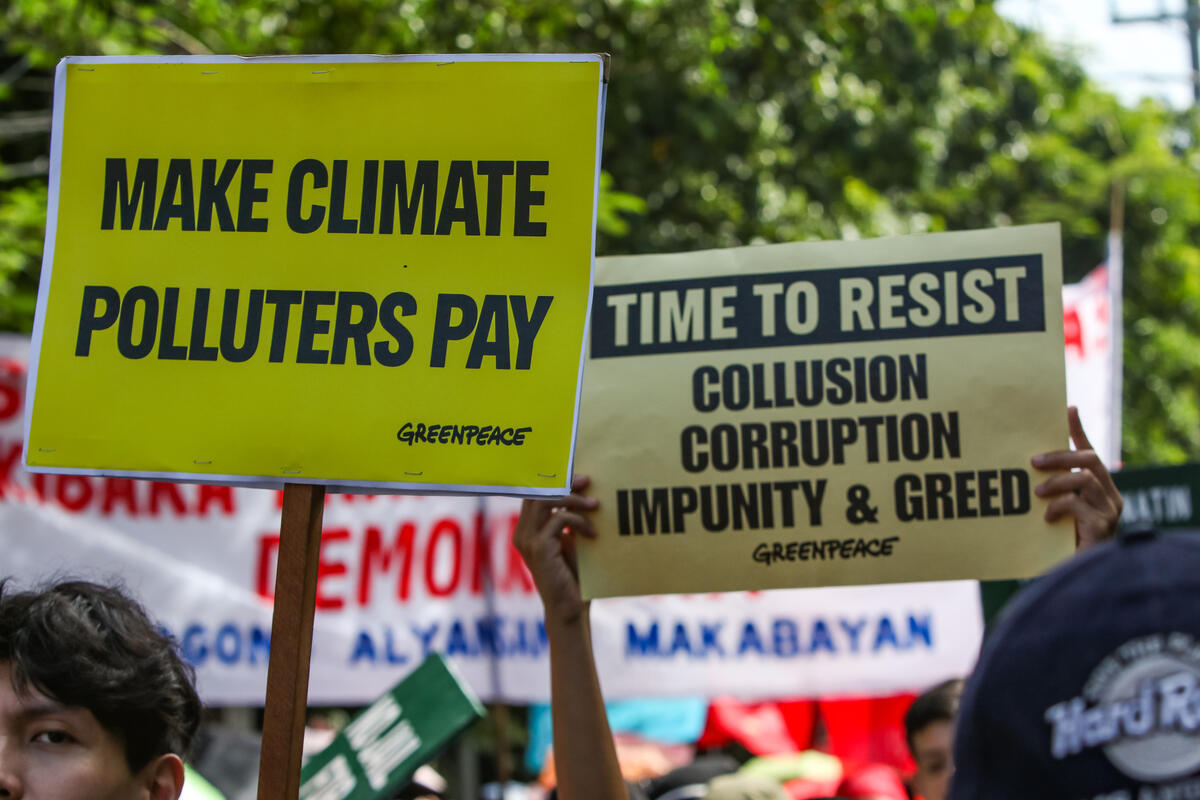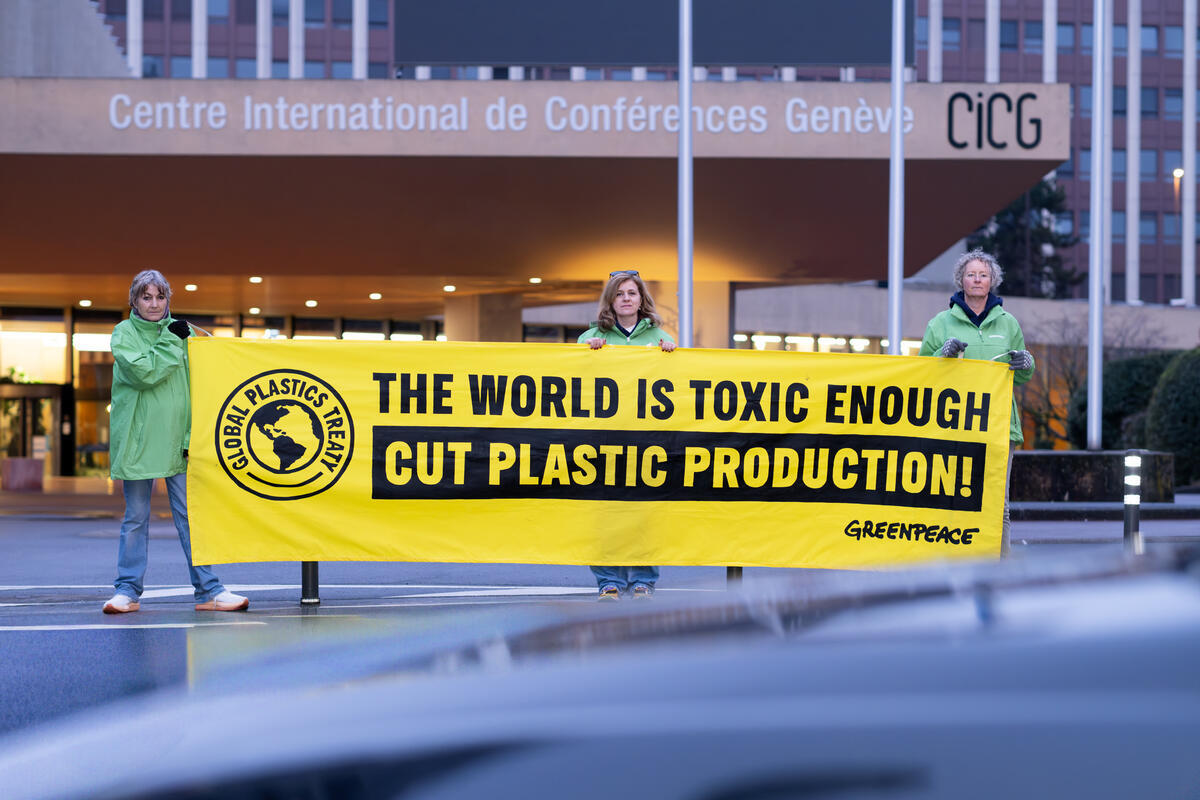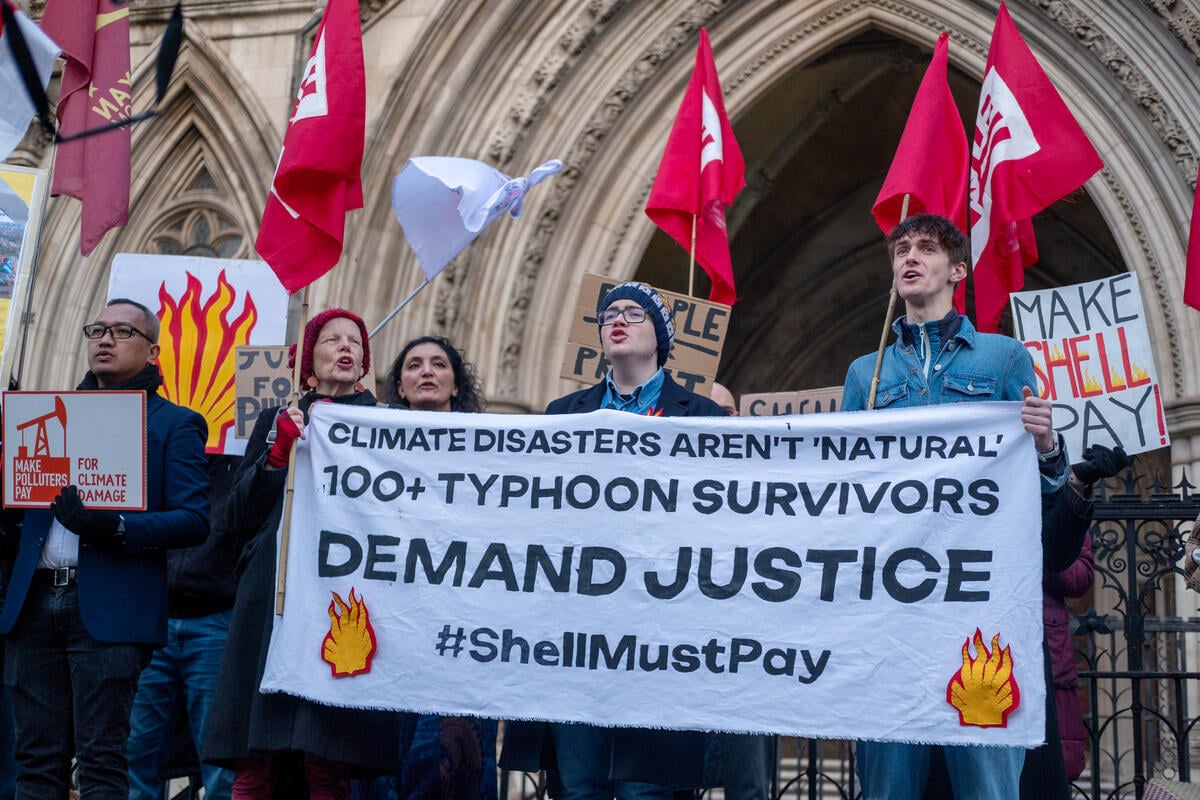Green groups slam “deafening silence” as ecological threats escalate
Quezon City — Leading environmental groups decried the sidelining of urgent environmental issues in the platforms of candidates running for senator in the upcoming Mid-term Elections, revealing that about 88% (56 of 64) failed to disclose their environmental agendas in the 2025 Green Electoral Initiative.
Only 8 candidates responded to the pre-election survey that sought to capture candidates’ positions on crucial environment issues facing the Philippines today. The groups behind the initiative includes Ecowaste Coalition, Greenpeace Philippines, PANGISDA Pilipinas, Health Care Without Harm, Community Legal Help and Public Interest Center (C-HELP), Mother Earth Foundation, Interfacing Development Interventions for Sustainability (IDIS), BAN Toxics and Break Free from Plastic (BFFP).

“Only eight candidates responded to urgent environmental questions—that’s not just disappointing, it’s a red flag,” said Lea Guerrero, Country Director of Greenpeace Philippines. “When climate justice is absent from platforms, it shows a dangerous disregard for the crises deepening hunger, worsening health, and driving poverty. We need leaders who will stand with people, hold polluters accountable, and put climate at the top of the agenda.”
Who Showed Up?
The candidates who responded to the survey and submitted their positions include Leody De Guzman, Teddy Casino, Luke Espiritu, David Delano D’Angelo, Jocelyn Santos Andamo, Norman Marquez, Mody Floranda, and Atty. Arnel Bondilles Escobal, while previous positive efforts and track records by non-respondents like ex-senators Francis “Kiko” Pangilinan (Sagip Saka Act and legislative efforts to address single-use plastics) and Gringo Honasan (Clean Air Act and Solid Waste Management Act) were noted.
Frontrunners’ Notable Absence
Meanwhile, top-polling candidates snubbed the survey entirely, despite a recent Social Weather Stations (SWS) poll showing that 92% of voters prioritize issues that are strongly linked to environmental and climate action, including food security and hunger, jobs, reduced poverty and disaster resilience.
“The silence of frontrunners is a damning symptom of our broken political system,” said Von Hernandez, Global Coordinator of the Break Free From Plastic movement. “While Filipinos grapple with climate disasters, plastic pollution and biodiversity collapse, our politicians cling and aspire to power through dynastic politics, smear campaigns and empty theatrics. Filipinos deserve leaders who fight like our nation’s survival depends on a safe and healthy environment—because it does, and survival is non-negotiable.”
The groups also lamented the current state of the Philippine environment which they said seems to be regressing as evidenced by the programs and policies driven by the government—from entertaining problematic nuclear energy and waste burning incineration as solutions, to allowing the continued proliferation of single use plastics and recent attempts to open municipal fishing waters to commercial fishing interests.
PANGISDA Pilipinas chairperson Pablo Rosales minced no words: “Ang ating mga pulitiko ay nahuhumaling sa mga panandaliang remedyo o band-aid solutions habang patuloy na nalulugmok ang bansa sa kahirapan, basura at krisis. Kailangang pagtuunan ng pansin ang sistematiko at makatarungang mga solusyon upang lunasan ang kawing-kawing na krisis ekolohiya.” (Politicians obsess over quick fixes while the nation wallows in poverty, trash and crisis. We need systemic and just solutions to solve the inter-connected ecological crisis.)
The groups unveiled a Survival Agenda to guide the electorate in selecting candidates they should vote for public office: ban single-use plastics and institutionalize reuse and zero waste solutions; end fossil fuels and promote climate justice; protect the rights of small fisherfolks, waste workers and consumers; champion real solutions and reject false fixes like waste to energy incineration and nuclear energy; and protect and rehabilitate the country’s terrestrial, coastal and marine resources. “This isn’t just policy—it’s a fight for breathable air, edible fish, and a liveable future,” stressed Wes Lipana, Marine Litter Management Officer of Ecowaste Coalition. “Our communities are drowning in plastic, our coastlines are eroding, and our children are growing up in a world where clean water and safe food are no longer guaranteed. Our environment is in a state of emergency, and that demands leadership. Voters must demand bold environmental leadership and scrutinize candidate track records, not slogans,“ Lipana added.
Since 2004, the Green Electoral Initiative has exposed candidates’ environmental commitments or lack thereof. The methodology involves a survey sent to candidates running for national office, asking them to disclose their positions on issues such as climate, biodiversity, waste management and pollution.
Note to the editors:
Press Contacts:
- James Relativo: [email protected] | +63 919 069 3424
- Tiffany Postrero: [email protected] | +63 966 200 7192
- Eah Antonio: [email protected] | +63 927 827 7960
About EcoWaste Coalition – EcoWaste Coalition is a non-profit environmental network of public interest groups working together for a zero waste and toxics-free society. Founded in 2000, the Coalition organizes and supports various citizens’ efforts addressing waste, climate and chemical safety issues through research and evidence building approach; information dissemination; skill shares and workshops; policy development and advocacy; and demonstration projects of ecological alternatives; and strategic campaigns and alliances, locally and internationally. EcoWaste Coalition is committed to protecting human health and the environment by addressing pollution at its source and pushing for just and sustainable solutions.
About Greenpeace Philippines – Greenpeace Philippines is a non-profit environmental organization established in 2000 as part of Greenpeace Southeast Asia. It campaigns for climate justice and a plastic-free future through peaceful protest, creative communication, and strong community engagement. It has also played a key role in shaping environmental legislation, including the Clean Air Act, the Ecological Solid Waste Management Act, and the Renewable Energy Act. More recently, the organization has deepened its work with frontline communities and continues to advocate for systemic change for both people and the planet. It is actively pushing for policies, and other legal mechanisms to hold major polluters accountable for climate harms, following its pivotal role as a petitioner in the landmark National Inquiry on Climate Change.
About PANGISDA Pilipinas – The Progresibong Alyansa ng mga Mangingisda, or Progressive Alliance of Fisherfolk, is a national coalition of artisanal, municipal and subsistence fishers and fisherfolk organizations. PANGISDA advocates for the priority access of small-scale fishers to municipal waters. The alliance also calls for government action on critical issues such as illegal fishing, reclamation, seabed quarrying, and offshore mining.
About Break Free From Plastic – #BreakFreeFromPlastic is a global movement envisioning a future free from plastic pollution. Since its launch in 2016, more than 3,500 organizations representing millions of individual supporters around the world, have joined the movement to demand massive reductions in single-use plastics and push for lasting solutions to the plastic pollution crisis. BFFP member organizations and individuals share the values of environmental protection and social justice, and work together through a holistic approach to bring about systemic change. This means tackling plastic pollution across the whole plastics value chain—from extraction to disposal—focusing on prevention rather than cure and providing effective solutions. www.breakfreefromplastic.org



